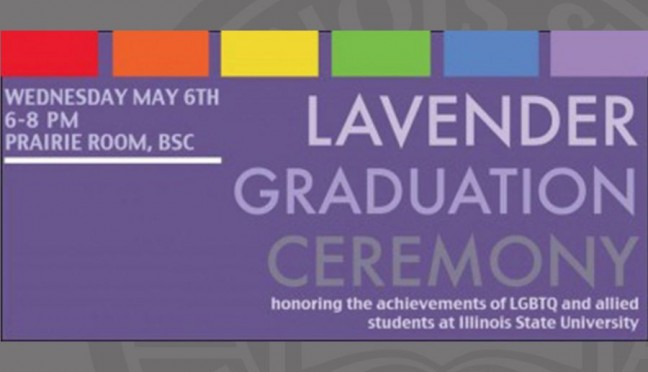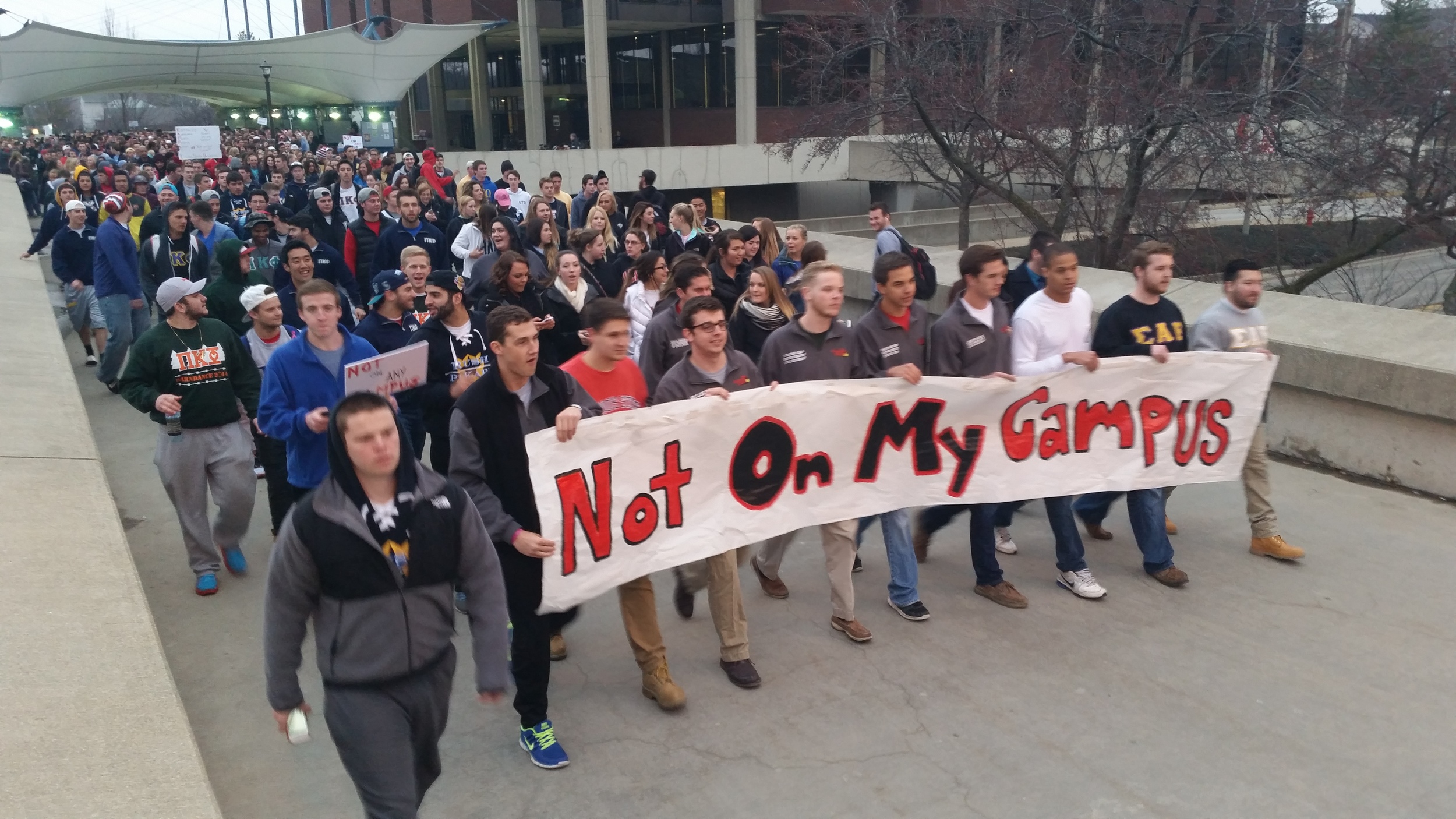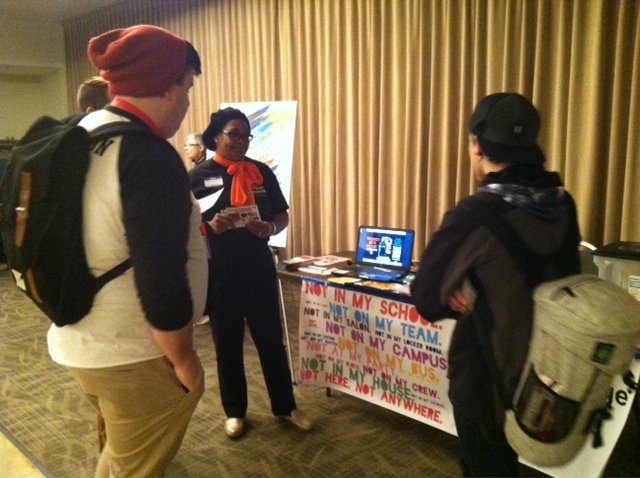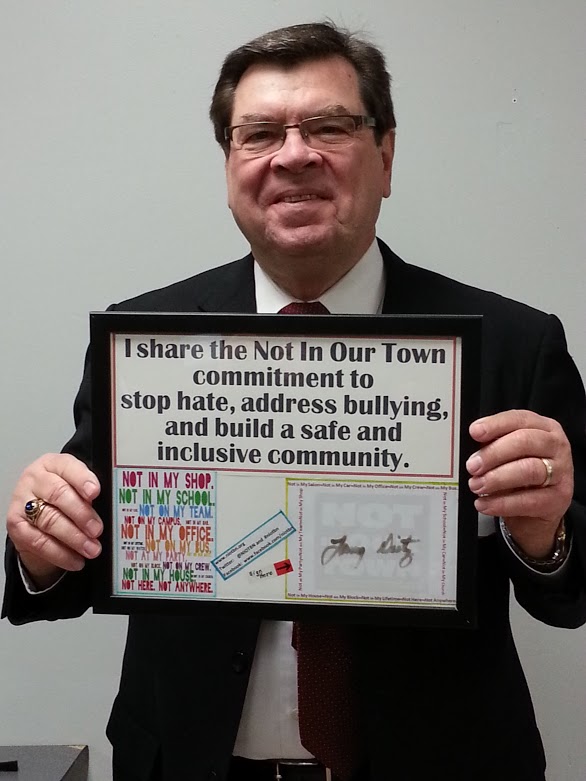A survey of approximately 2,000 teachers by the Southern Poverty Law Center indicates that the presidential campaign is having a profoundly negative impact on schoolchildren across the country, according to a report released today.
The report – The Trump Effect: The Impact of the Presidential Campaign on Our Nation’s Schools – found that the campaign is producing an alarming level of fear and anxiety among children of color and inflaming racial and ethnic tensions in the classroom. Many students worry about being deported.
Teachers also reported an increase in the bullying, harassment and intimidation of students whose races, religions or nationalities have been the verbal targets of candidates.
“We’re deeply concerned about the level of fear among minority children who feel threatened by both the incendiary campaign rhetoric and the bullying they’re encountering in school,” said SPLC President Richard Cohen. “We’ve seen Donald Trump behave like a 12-year-old, and now we’re seeing 12-year-olds behave like Donald Trump.”
The online survey, conducted by the SPLC’s Teaching Tolerance project from March 23 to April 2, is not scientific. But it provides a rich source of information about the impact of this year’s election on the country’s classrooms. The data, including 5,000 comments from educators, shows a disturbing nationwide problem, one that is particularly acute in schools with high concentrations of minority children.
- More than two-thirds of the teachers reported that students – mainly immigrants, children of immigrants and Muslims – have expressed concerns or fears about what might happen to them or their families after the election.
- More than half have seen an increase in uncivil political discourse.
- More than third have observed an increase in anti-Muslim or anti-immigrant sentiment.
- More than 40 percent are hesitant to teach about the election.
While the survey did not identify candidates, more than 1,000 comments mentioned Donald Trump by name. In contrast, a total of fewer than 200 contained the names Ted Cruz, Bernie Sanders or Hillary Clinton. More than 500 comments contained the words “fear,” “scared,” “afraid,” “anxious,” or “terrified” to describe the campaign’s impact on minority students.
“My students are terrified of Donald Trump,” wrote a teacher from a middle school with a large population of African-American Muslims. “They think that if he’s elected, all black people will get sent back to Africa.”
In state after state, teachers reported similar fears.
A K-3 teacher in Oregon said her black students are “concerned for their safety because of what they see on TV at Trump rallies.” In Tennessee, a kindergarten teacher said a Latino child – told by classmates that he will be deported and blocked from returning home by a wall – asks every day, “Is the wall here yet?”
A number of teachers reported that students are using the word “Trump” as a taunt or chant as they gang up on others. Muslim children are being called “terrorist,” or “ISIS,” or “bomber.” One teacher wrote that a fifth-grader told a Muslim student “that he was supporting Donald Trump because he was going to kill all of the Muslims if he became president!”
Educators, meanwhile, are perplexed and conflicted about what to do. They report being stymied by the need to remain nonpartisan but disturbed by the anxiety in their classrooms and the lessons that children may be absorbing from this campaign.
“Schools are finding that their anti-bullying work is being tested and, in many places, falling apart,” said Teaching Tolerance Director Maureen Costello, author of the report. “Most teachers seem to feel they need to make a choice between teaching about the election or protecting their kids. In elementary school, half have decided to avoid it. In middle and high schools, we’re seeing more who have decided, for the first time, not to be neutral.”
The long-term impact on children’s wellbeing, their behavior or their civic education is impossible to gauge. Some teachers report that their students are highly engaged and interested in the political process this year. Others worry that the election is making them “less trusting of government” or “hostile to opposing points of view,” or that children are “losing respect for the political process.”
The SPLC urged educators to not abandon their teaching about the election, to use instances of incivility as teaching moments, and to support children who are hurt, confused or frightened by what they’re hearing from the candidates.




























